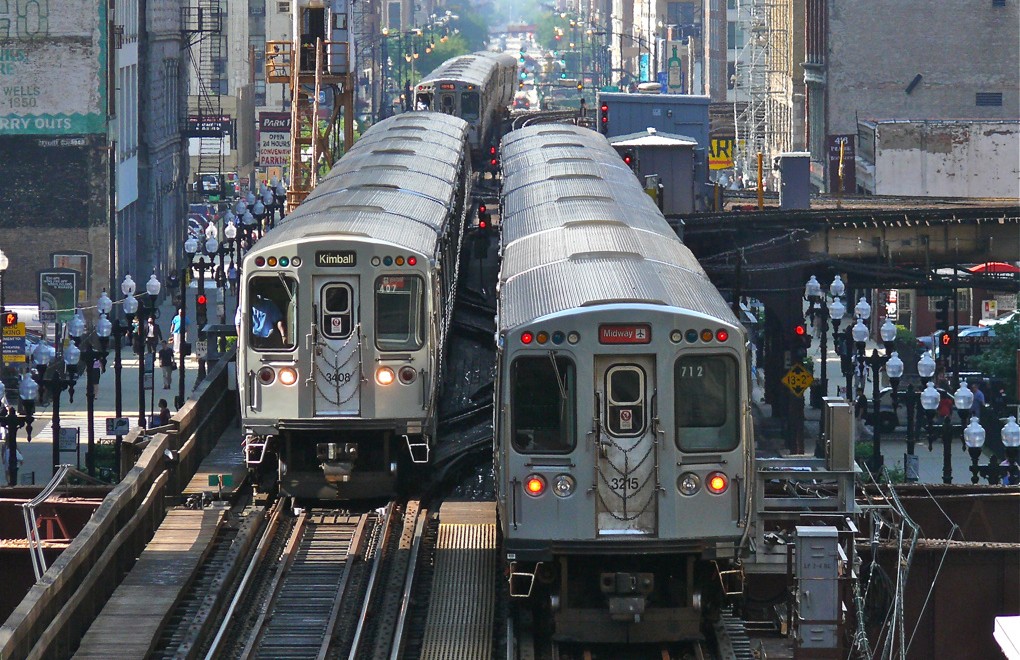Should I stay or should I go?
As students enter their senior year of high school, they begin planning for college, filling out applications and waiting to see where they might be accepted. Those planning to attend college in downtown Chicago have anotherdecision to make on top of it all —should they live on campus or commute from home? For some students and parents, the decision is easy. For others, factors such as finances, time and distance are taken into deeper consideration.
Amanda Coughlin is an 18-year old freshman at DePaul University. Coughlin says when deciding whether to commute the one-anda-
half hour trip to her hometown of south suburban Matteson or to live on campus, her mom wanted her to have what she didn’t at college: the dorm life experience. Coughlin just moved into the dorms in the Lincoln Park neighborhood of Chicago only a few weeks ago, but she says she loves every minute of it.
“I wanted to be in the city; to be in the suburbs your whole life gets boring,” Coughlin says. “[The city] is a change of pace and somewhere new and more exciting.”
Since being at college, Coughlin says she’s met many people, especially through her roommates at the dorms.
“You spend so much time commuting; it’s hard to get involved. I’ve made friends just because of my dorm mates,” Coughlin says. “You’re kind of forced into meeting people, and for people like me, I’m kind of quiet and shy. It’s such an easier way to get involved in the school experience instead of just going to class and going home.”
For others who commute, it’s a give-and-take relationship. They may sacrifice some aspects of college life, but it’s worth it to save money. After attending college in Scotland, 25-year-old Anders Milton, who lives in Lake Bluff, moved back to the states to attend the University of Illinois-Chicago as a political science major. Although his original plan was to eventually live downtown and go to
school, Milton says commuting wasn’t so bad.
“The original plan was to start off as a commuter and once had figured everything out [and] gotten situated, I would find a place downtownto live,” Milton says. “Once I actually started though, I really didn’t mind commuting since it was so easy. I decided to save some money and keep commuting.”
Milton’s commute is 45 minutes each way. On the train ride, he says he works on homework. For him, after already
experiencing college in atypical fashion, missing dorm life is no big deal. He does admit it’s hard planning around the Metra train schedules and meeting new people.
“The only frustrations I would mention are primarily it is more difficult to meet new people on campus because so many of the people
get to know each other through living together and not through classes,” Milton says. “It requires more effort.”
After attending the College of DuPage before transferring to Columbia College Chicago, senior Mandy Treccia commutes daily
from Naperville.Treccia, who previously only came into Chicago three days per week, now has a job that requires her to be in the city five days. Although Treccia says she now has to pay the $126 monthly Metra pass to accommodate her work schedule, she says it’s still cheaper than living in the city.
She says one downfall is that parking at her Metra station is limited. Therefore, her parents drive her there and pick her up, which requires a lot of scheduling. While she is in the city, Treccia says that not having the luxuries the students who live in the dorms or live in the city have – that nearby convenience – can also be frustrating.
“It would be nice to run home and take a nap in the middle of the day,” Treccia says.
With only one more semester to go at Columbia, Treccia says she’ll continue to commute back-andforth.
Hinsdale resident Konrad Biegaj, a senior at Columbia, made the decision to commute early on to save money in the long run. Biegaj says he plans to leave Chicago after graduation. He didn’t want to rack up student loans to pay for rent and utilities. Additionally,
he has a great relationship with his parents.
“Some people don’t, and need to get out,” Biegaj says. “I’m not one of those people.”
Katrina Alfarao, a senior at Columbia who transferred from the University of Illinois-Chicago, did the same as Treccia until the commute became too difficult. At first, she drove from her home in Downers Grove to the University of Illinois-Chicago. After transferring to Columbia, she had a two-hour commute: driving to the Metra station taking the train and then taking a CTA bus to school.
Last semester, she decided to get an apartment in Lincoln Park. Since, she says, she only wishes that she had done it sooner. Now, Alfaro no longer needs to wait an hour-and-a-half between Metra trains if she misses one.
Kaila Sanabria, a sophomore at Columbia, says she would tell anyone coming to college to live in the dorms for at least a year.
“[The dorms] is where I met all my friends and my roommate now,” Sanabria says. “It would be hard to move into the city and not know anyone and be on your own because you don’t meet anyone, you don’t know where you’re going.”
Sanabria now shares a place in the Pilsen neighborhood of Chicago, but she took a lot away from her dorm experience.
“It was nice to have a place that was structured and [to be around] people who knew the city and could show you around,” she says.
For now, Sanabria enjoys that she no longer is required to hang up decorations with sticky tack.
“It’s the simple things; having your own place and feeling independent,” she says.
For commuters, it’s just the same.
“As long as you make an effort to get to know people, you can have just as much fun and probably save some money by doing so,” Milton says.
—Pioneer Press, October 2008






